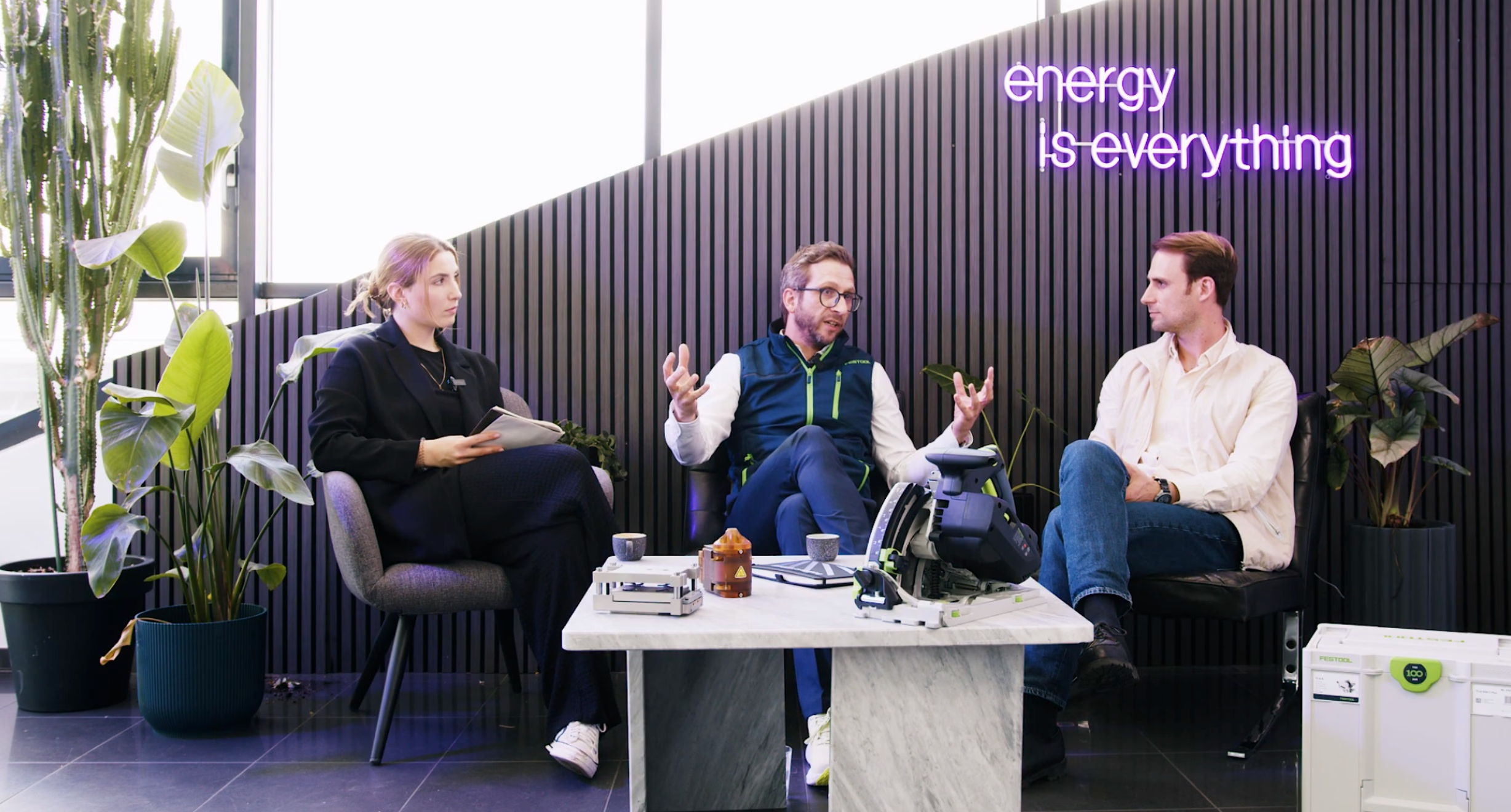In Episode 2 of Espresso Talks, we explore how traditional industries are evolving by embracing AI, smarter tools, and innovative data strategies. From internal transformations to building smarter battery-powered solutions, this episode delves into how legacy companies can drive the tech shift.
🎧 Join us for a conversation with Wolfgang Knorr, CTO of Festool, as we discuss their tech-driven journey, blending 100 years of history with cutting-edge innovation in today’s digital world.
Espresso Talks Episode 2 | When Craftsmanship Meets Artificial Intelligence
☕️ What’s inside this episode?
- How traditional industries are navigating digital transformation
- The role of AI in reshaping manufacturing and product development
- Festool’s approach to staying relevant while innovating
- The future of smarter battery-powered tools
When craftsmanship meets artificial intelligence: The Festool Case
In the second episode of Espresso Talk, we dive into the world of Festool, a German family-owned company that produces high-end power tools for professional woodworkers and painters. With over 100 years of history and nearly all of its manufacturing based in Europe, Festool sets itself apart through product quality, innovation, and a clear focus on customer productivity.
A different path in the powertool industry
While the power tool industry is dominated by large global players with strong manufacturing footprints in Asia, Festool is taking a different route. The company focuses on top-tier quality, innovation, and enhancing customer efficiency. With annual revenues of around €900 million and a workforce of approximately 3,300 employees, Festool continues to prioritize these core values.
Facing industry-wide challenges
The sector is undergoing major changes, from the rise of cordless tools and new tariffs to local requirements (certifications and regulations) and the growing struggle to find skilled labor. Festool sees digitalization, automation, and sustainability as key players to address these challenges effectively.
The power of data
For Festool, data is at the core of progress. As CTO Wolfgang Knorr declares, “Data is our power, and AI is the tool.” One clear example is battery products. Contrary to popular belief, the company doesn’t benefit much from the broader EV battery trend. Festool works with compact 18V high-current batteries, requiring rigorous testing and a wealth of data to meet performance specifications.
A mindset built for change
When talking about AI adoption, many companies face resistance or hesitation towards something unknown. At Festool, the story is different. Indeed, the technological change isn’t perceived as a disruption, rather it’s part of the company’s DNA. This deeply ingrained mindset means that when AI entered the conversation, it wasn’t met with skepticism, but with curiosity.
Embracing AI at Festool was not just about having the right attitude, it is about committing to a long-term vision.
According to the CTO, adopting AI requires the right people, especially skilled ones. It is also about building a solid infrastructure and fostering a culture where testing, failing and learning from mistakes is part of the journey. This mindset is what fuels innovation and turns AI from merely a tool into an integral part of Festool’s continuous growth and transformation.
AI in action: practical application and future plans
At Festool, AI is seen as a powerful tool for both operational efficiency and employee engagement. One key initiative involved incorporating gamification and creating a pitch-style format where employees could present their AI-driven solutions and compete with innovative ideas. This approach has fostered greater involvement and enthusiasm within the team.
However, the adoption of AI requires significant groundwork, especially in terms of data governance. Establishing proper data management practices is essential to ensure AI’s effectiveness. Initially, the focus has been on applications such as chatbots for product and order information, as well as automated document management.
Looking ahead, Festool is planning to expand its AI initiatives to more complex areas, including product price calculation, better utilization of Sales and Operations Planning, and optimization of production machine processes.
The Future of AI at Festool
Looking ahead to the next 10 years, Festool envisions AI having a profound impact on the business, particularly for automation. As the CTO highlights, "Everything that can be economically automated will be automated." This includes areas such as robotics, where AI has already driven significant advancements and is expected to accelerate even further.
The integration of AI will be crucial in addressing the ongoing challenge of skilled labor shortages, enabling the company to streamline operations and increase productivity.Over the next decade, AI will continue to play a key role in developing better products, especially in sectors like battery cell technology, ultimately making customers more productive and advancing Festool’s leadership in the market.

